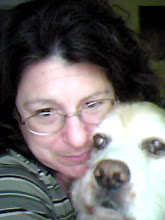Half-Baked and McGolden
One of the readings we're set to discuss today is a New York Times article by Ralph Blumenthal on how the University of Texas at Austin has gotten rid of all the books in its undergraduate library to make room for a 24-hour "digital learning lab," i.e., a bunch of computers.
Okay, don't panic. I did, and it doesn't help matters. Take a few deep breaths, and listen. It's not what you think.
Further along in the article we learn that they haven't tossed the books, just moved them to other locations around campus. And UT still has the larger Perry-Castañeda graduate library, no longer the purview only of grad students.
UT's situation reminded me of a distinction I made between the University of Maryland's two libraries when I studied there in the early 1990s. Hornbake, the undergraduate library, had fewer volumes, less specialized information, and always seemed to have a lot of distracted undergrads milling about. I recall that it was generally noiser and had fewer of the specialized resources I needed for my classes in secondary education.
McKeldin, the graduate library, had a larger, more sophisticated collection, attracted more focused students, and was, in my estimation, vastly superior to the other library.
I remember parodying the distinction at the time by thinking of the two libraries as "Half-Baked and McGolden."
So what UT has done, essentially, is keep its McKeldin intact but redistribute its Hornbake collection to other locations around campus. Presumably this includes moving some titles to the graduate library and also to smaller departmental collections.
Okay, so now that we've gotten the scoop and calmed down a bit... what of it? Is it a good idea not to have an undergraduate library stocked with volumes? What signal does it send to undergrads that their central repository of books has been replaced by a bank of computers?
One answer: It tells them that books are not as central to an undergraduate education as computers. Maybe it also tells them that research in books is only for relentless pupils willing to track down a volume in some obscure campus location. Or that the random discovery of titles on the shelves is irrelevant to their learning experience.
But is that really all there is to it?
Of course not. It would be narrow-minded to believe that as human knowledge expands the methods for storing and accessing that knowledge should remain static. Granted, being published still indicates that the information in question has been through some kind of vetting process, an examination (and presumably validation) by educated peers. But the last 20 years have seen the publishing industry begin a remarkable transformation. Books, periodicals and reference works are now routinely published on CD-ROM or online. When I began working in online publishing in the mid-1990s it was known as "new media." Now the "new" is a misnomer.
Undergraduates at UT may not discover a title of interest while wandering among bookshelves, but they are just as likely to discover that title online, then electronically reserve it at the graduate library or a departmental collection. And academic periodicals—the mainstay of most college libraries—are now accessible online in subscription databases, freeing up voluminous space previously occupied by hefty bound volumes. This is a change that makes a lot of sense. After all, libraries are meant to house ideas, not just paper.
Several times a week I receive a request from a student for one or two books on a given subject, not because the child needs information on that topic, but because his or her teacher has required that they list at least one book among their sources. It's backlash against the use of Google—random online searching with little concern for the integrity of Web sources. I have been frustrated a few times when I suggest using an article from an online periodical, only to have the patron refuse the information because "it's not from a book."
Instead of reinforcing the polarized books-versus-online debate, teachers and librarians need to begin to respond to the changing landscape of information storage. And if that means making one library primarily electronic while the other remains more traditionally paper-based, maybe that's not such a bad idea.


